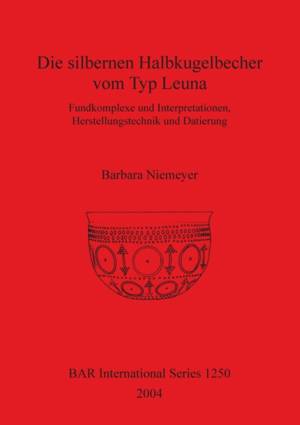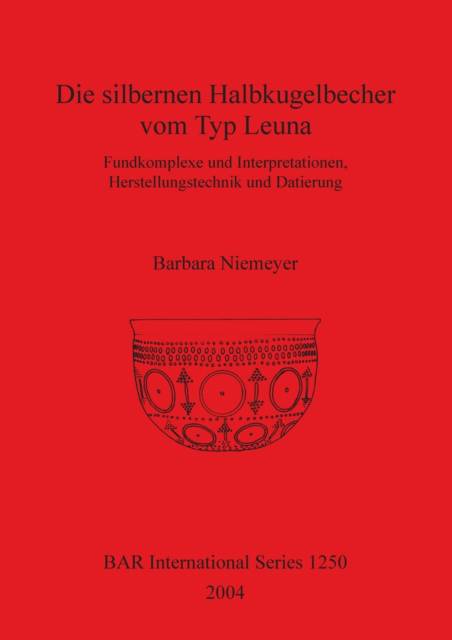
Bedankt voor het vertrouwen het afgelopen jaar! Om jou te bedanken bieden we GRATIS verzending (in België) aan op alles gedurende de hele maand januari.
- Afhalen na 1 uur in een winkel met voorraad
- In januari gratis thuislevering in België
- Ruim aanbod met 7 miljoen producten
Bedankt voor het vertrouwen het afgelopen jaar! Om jou te bedanken bieden we GRATIS verzending (in België) aan op alles gedurende de hele maand januari.
- Afhalen na 1 uur in een winkel met voorraad
- In januari gratis thuislevering in België
- Ruim aanbod met 7 miljoen producten
Zoeken
Die silbernen Halbkugelbecher vom Typ Leuna
Fundkomplexe und Interpretationen, Herstellungstechnik und Datierung
Barbara Niemeyer
€ 70,95
+ 141 punten
Omschrijving
This work is a study of the distinctive Leuna beaker type, a unique form of Roman silver vessel. The beakers under discussion appear in three types of find context, treasures or hoards, burials and in one case a cult context. The distribution of embossedsilver beakers of the Leuna type is confined to the north-western provinces of the Roman Empire and the so-called free Germanic area, and most finds are dated to the 3rd century AD. As well as the Leuna finds, the study includes the discoveries from Water Newton, Ballinrees, Rheinbach-Flerzheim, Saint-Pabu, Hågerup, Chaourse, Notre-Dame d'Allençon, and Taragnat. Chapter one is devoted to a detailed discussion of the connection of the hemispheric embossed silver beakers of the Leuna type with contemporary cut glass beakers, and further chapters consider form, design, use, and metallurgical factors. The catalogues provide detailed entries of all finds.
Specificaties
Betrokkenen
- Auteur(s):
- Uitgeverij:
Inhoud
- Aantal bladzijden:
- 116
- Taal:
- Engels
- Reeks:
- Reeksnummer:
- nr. 1250
Eigenschappen
- Productcode (EAN):
- 9781841716107
- Verschijningsdatum:
- 1/07/2004
- Uitvoering:
- Paperback
- Formaat:
- Trade paperback (VS)
- Afmetingen:
- 210 mm x 297 mm
- Gewicht:
- 394 g

Alleen bij Standaard Boekhandel
+ 141 punten op je klantenkaart van Standaard Boekhandel
Beoordelingen
We publiceren alleen reviews die voldoen aan de voorwaarden voor reviews. Bekijk onze voorwaarden voor reviews.









